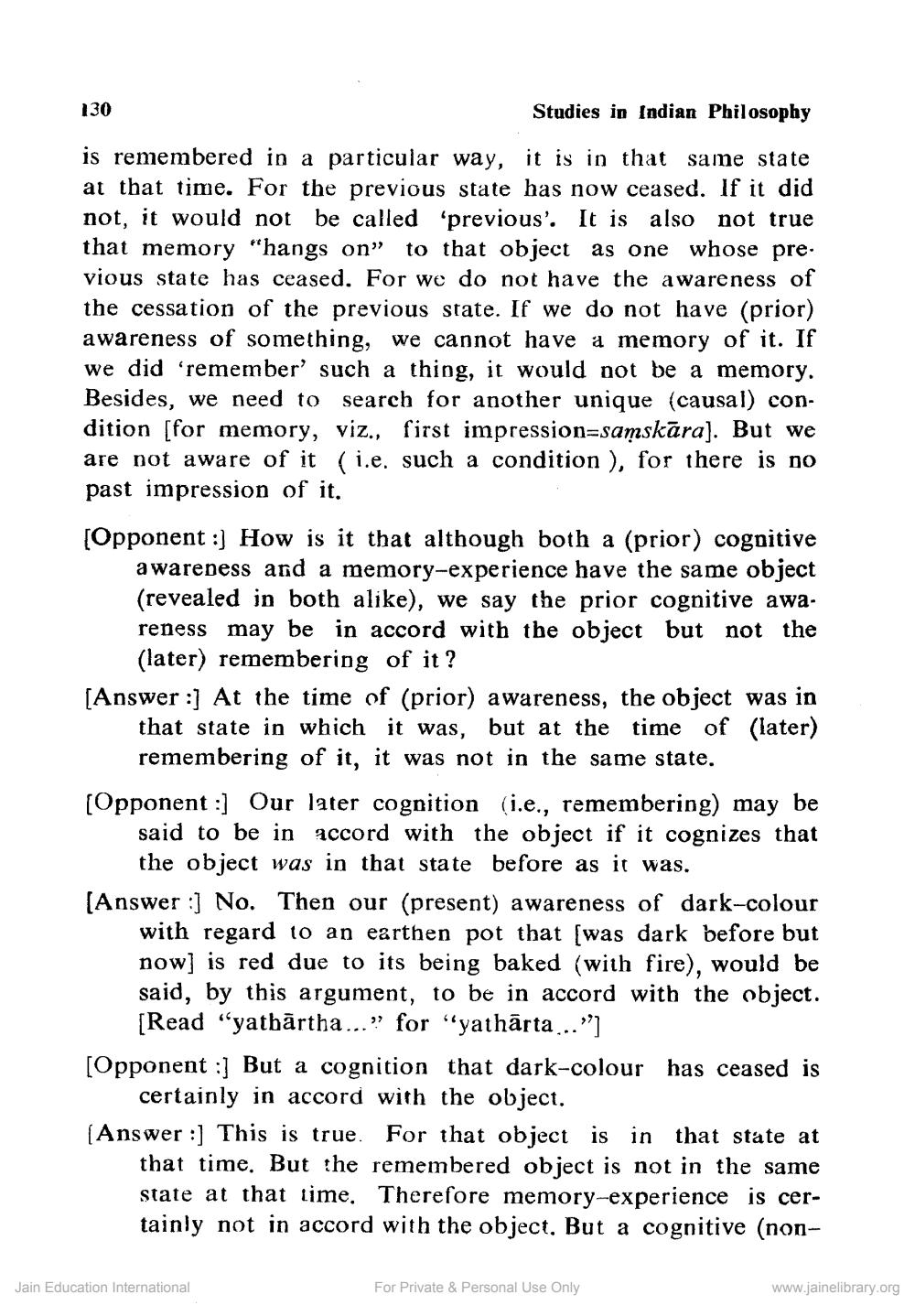________________
130
Studies in Indian Philosophy
is remembered in a particular way, it is in that same state at that time. For the previous state has now ceased. If it did not, it would not be called 'previous'. It is also not true that memory "hangs on” to that object as one whose pre. vious state has ceased. For we do not have the awareness of the cessation of the previous state. If we do not have (prior)
ness of something, we cannot have a memory of it. If we did remember such a thing, it would not be a memory. Besides, we need to search for another unique (causal) condition [for memory, viz., first impression=samskāra). But we are not aware of it (i.e. such a condition ), for there is no past impression of it. [Opponent :) How is it that although both a (prior) cognitive
awareness and a memory-experience have the same object (revealed in both alike), we say the prior cognitive awareness may be in accord with the object but not the
(later) remembering of it? [Answer :] At the time of (prior) awareness, the object was in
that state in which it was, but at the time of (later)
remembering of it, it was not in the same state. (Opponent :) Our later cognition (i.e., remembering) may be
said to be in accord with the object if it cognizes that
the object was in that state before as it was. (Answer :] No. Then our (present) awareness of dark-colour
with regard to an earthen pot that (was dark before but now] is red due to its being baked (with fire), would be said, by this argument, to be in accord with the object.
[Read “yatbārtha...” for “yathārta..."] [Opponent :] But a cognition that dark-colour has ceased is
certainly in accord with the object. (Answer :) This is true. For that object is in that state at
that time. But the remembered object is not in the same state at that time. Therefore memory-experience is certainly not in accord with the object. But a cognitive (non
Jain Education International
For Private & Personal Use Only
www.jainelibrary.org




